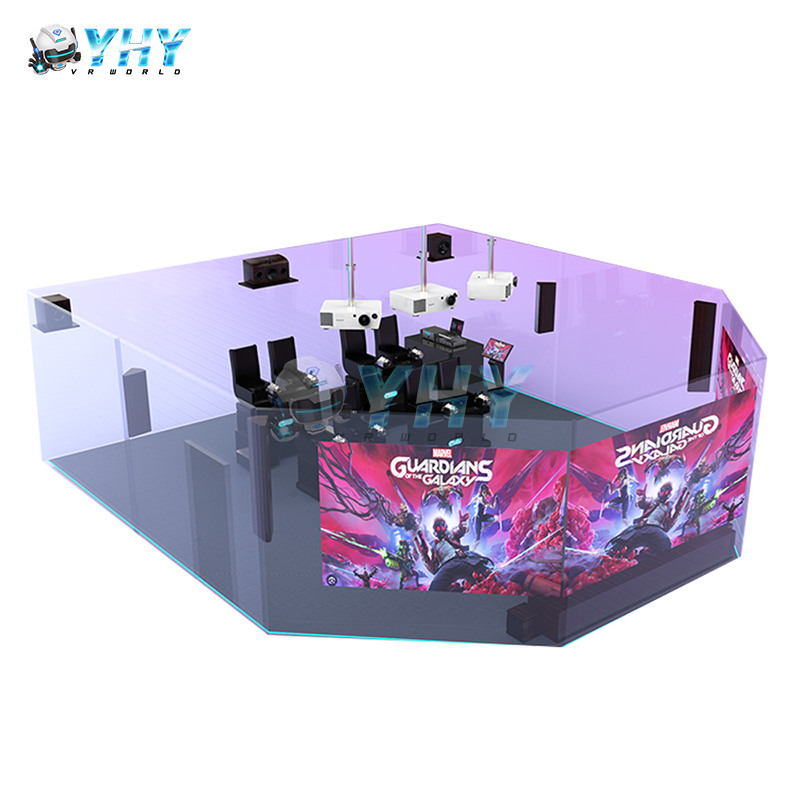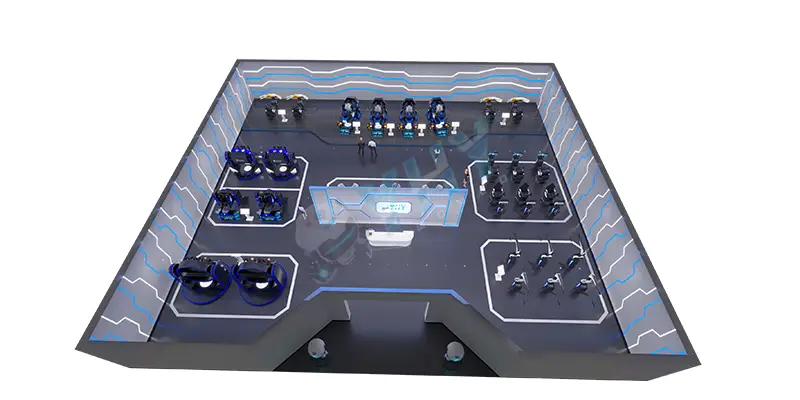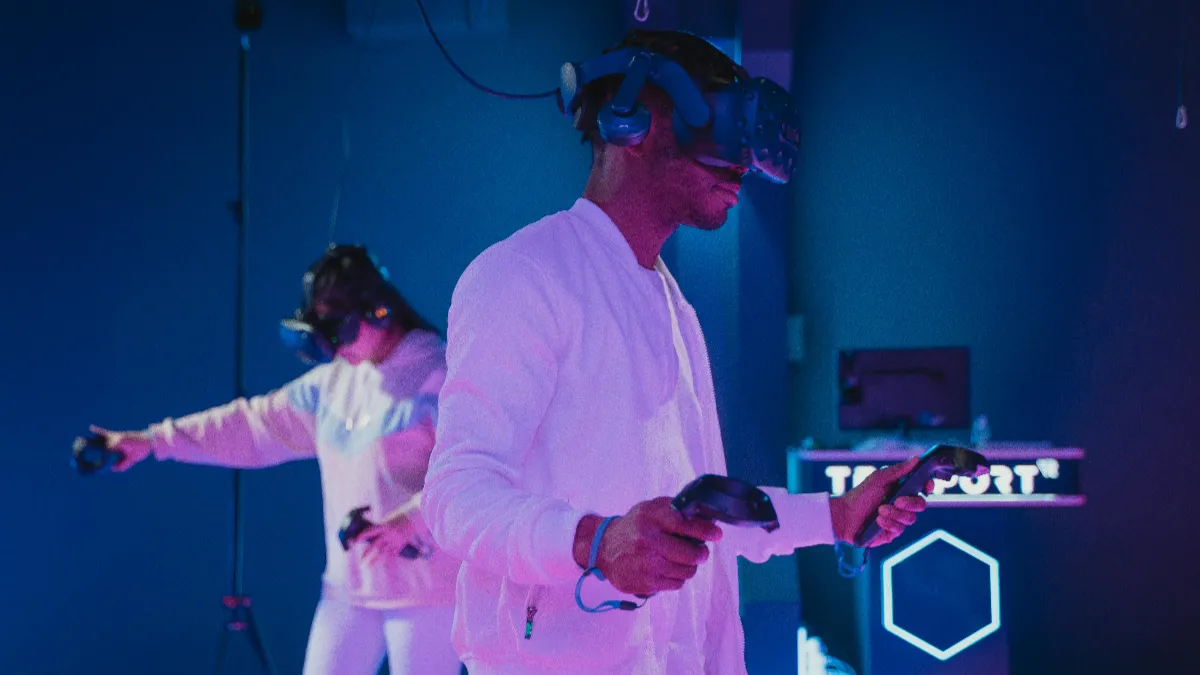Ever wonder what it’s like to be behind the wheel of a race car or pilot a jet fighter—all from the comfort of your home? Virtual reality has made these experiences possible, but to truly immerse yourself, you need more than just a VR headset. That’s where a VR motion simulator comes into play. These advanced systems take your gaming or simulation experience to the next level by synchronizing real-world motion with virtual environments, making it feel like you’re really there. In this blog, we’ll explore the top makers and how to choose the best one for your needs.
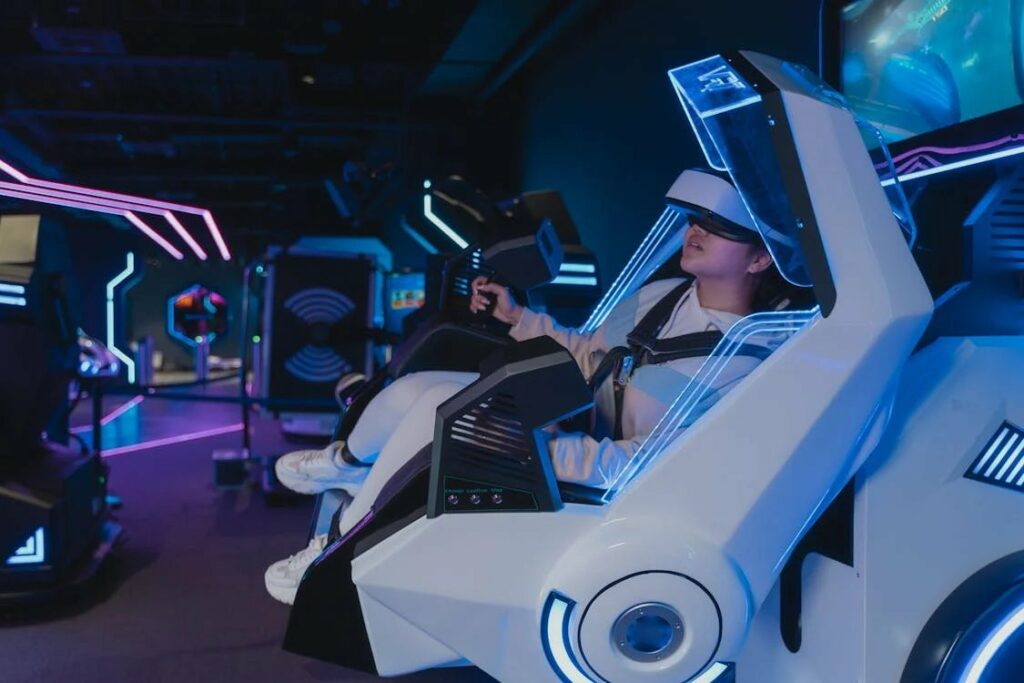
トップ 3 VRモーションシミュレーターメーカー
Some may ask, “Where to buy virtual reality games and motion simulators?” The market is filled with suppliers, but only a few stand out due to their innovation, reliability, and technological prowess. Below are three of the top players in the industry who are poised to lead the VR motion simulator space in 2026.
YHY
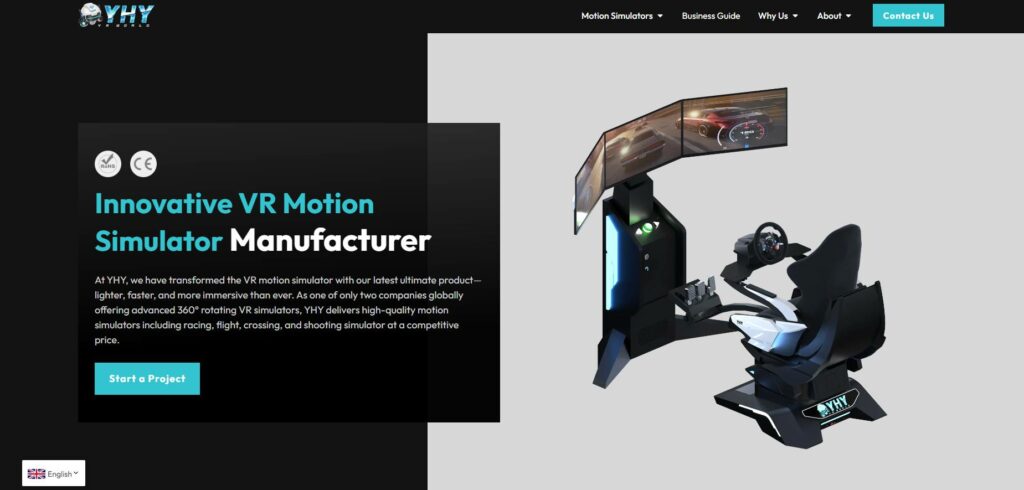
YHY is the first company to develop a 360-degree motion simulator, making a significant impact on the VR market since its founding in 2016. Specializing in this innovative テクノロジー, YHY has pioneered advanced motion platforms that deliver unparalleled realism and immersion for users.
YHY’s motion simulators are known for their advanced 3DOF (Degrees of Freedom) motion technology. This self-developed technology enhances the feedback of every movement, allowing for an incredibly realistic experience while minimizing the common issue of dizziness often associated with motion simulators. Moreover, YHY utilizes a new circular arc movement trajectory, offering a wider range of motion compared to traditional motion platforms.
In addition to their impressive product range, YHY has significant experience in VR site planning and design. From VR arcades and theme parks to virtual gaming centers, it offers comprehensive solutions for VR entertainment spaces.
YAW
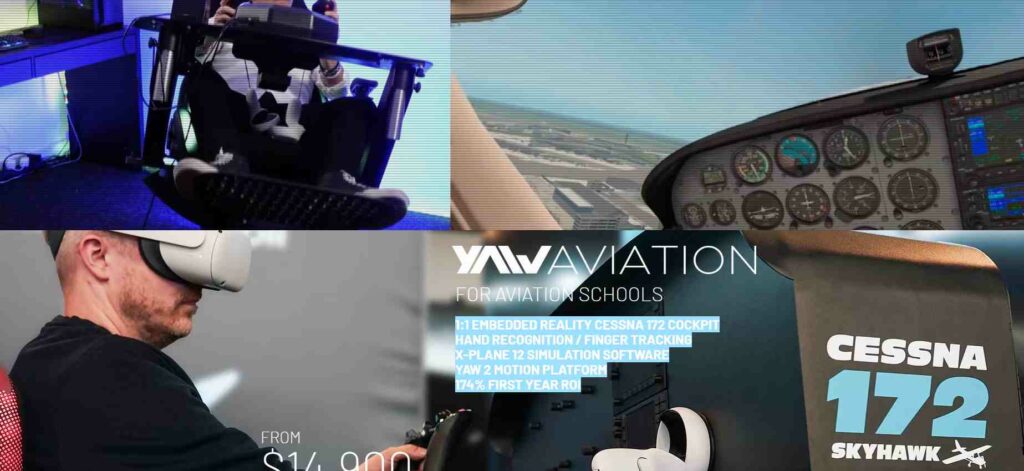
In addition to YHY, Yaw VR Ltd is the globally second advanced 360° rotating VR simulator in the world to be offered. YAW, founded in 2017 by Zsolt Szigetlaki, Balázs Pécskai, and Norbert Szigetlaki, is the creator of Yaw1 and Yaw2 VR motion simulators. Yaw1, launched in 2018 via Kickstarter, is the most compact and affordable 3DOF motion simulator for VR gaming. Yaw2, released in 2021, offers the highest motion range on the market. The company manufactures 90% of parts in Hungary and has expanded its production capacity to meet growing demand.
DOF Reality
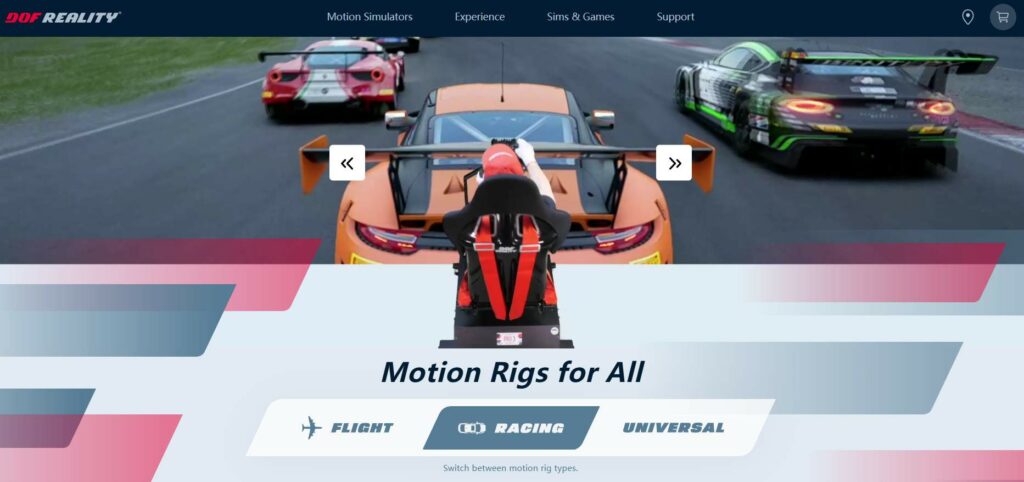
DOF Reality® is a leading manufacturer of motion simulator platforms, designed to replicate the experience of racing, flying, or simulating conditions affecting the body in space. 以来 2014, the company has combined engineering innovation with affordability to make realistic sensations accessible to all. Used by racing game fans, real racers, flight sim enthusiasts, and professionals from NASA, the Navy, and the Air Force, DOF Reality offers various product lines: HERO, PRO, and MOVER, with models ranging from 2DOF to 6DOF. The platforms are compatible with over 140 games and simulations, including popular racing and flight titles. The company also provides software that connects simulation telemetry to its platforms, enhancing immersion for users on Xbox, PS, or PC.
Essential Features to Evaluate in a VR Motion Simulator Supplier
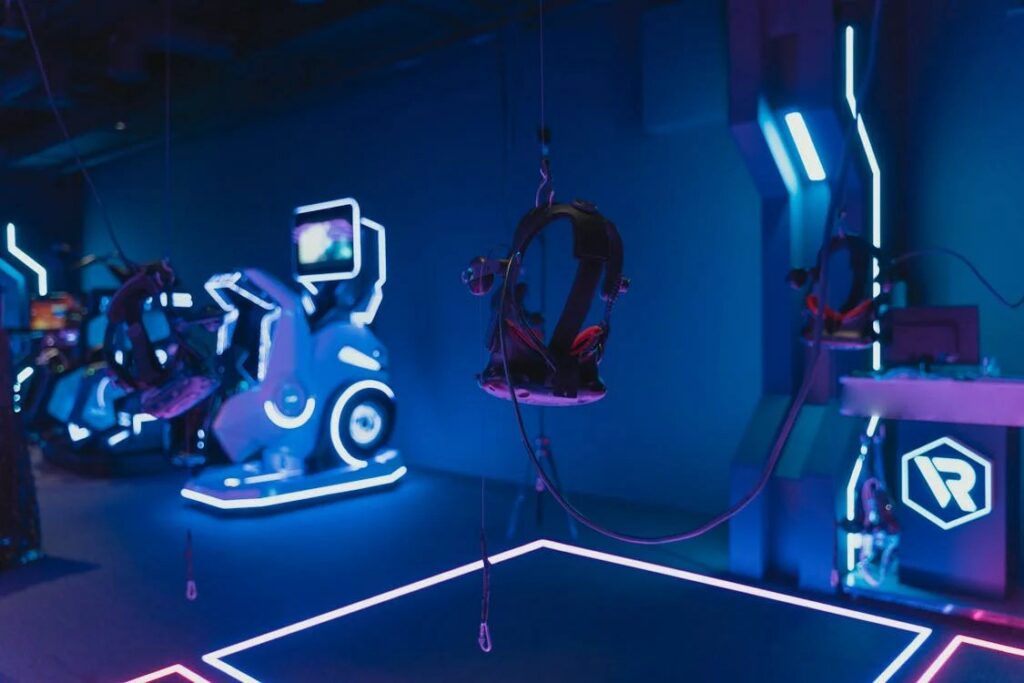
When selecting a virtual reality motion simulator supplier, it’s crucial to assess the key features that will ensure an immersive, reliable, and scalable VR experience. Below are the essential aspects to consider in evaluating any VR motion simulator provider.
Advanced Motion Technology
One of the most important aspects of a virtual reality motion simulator is the underlying motion technology. Advanced motion systems, such as YHY’s New 3DOF Motion Platform, ensure low latency, 高精度, and seamless synchronization with VR content. 3dof (Degrees of Freedom) systems focus on pitch, ロール, そしてヨーの動き, delivering a realistic experience that mimics real-world sensations. Generally, systems with a 3DOF platform can generate motion responses with a response time of 20-50 ミリ秒, crucial for maintaining immersion during high-speed racing or flight simulations.
Besides, the 6DOF platform adds surge, sway, and heave to the motion experience, allowing for a broader range of movements that simulate more complex interactions, such as turbulence in flight simulators or car collisions in racing games.
Customizable Simulator Options
The ability to customize a simulator for specific user needs is essential for many businesses. Whether it’s adjusting motion intensity, seat configuration, or system integration with specific VR software, a high degree of customization can make a big difference. Suppliers like YHY provide flexible configurations for their simulators, allowing users to select from various motion ranges (例えば。, 3dof, 6dof) and specific seating arrangements to suit different types of VR experiences.
さらに, some suppliers offer custom branding and cosmetic modifications for commercial setups, ensuring the simulators fit seamlessly into arcade environments, テーマパーク, or educational settings. Also, customization can extend to system upgrades, allowing for future-proofing with add-ons such as enhanced motion tracking or software updates to keep pace with evolving VR technologies.
Industry-Specific Solutions
Different industries have unique demands when it comes to VR motion simulators. 例えば, flight schools might require specialized simulators with precise yaw, pitch, and roll motions for pilot training. Suppliers like YHY and DOF Reality are already working on custom solutions for sectors such as aviation and military training, where the need for high-fidelity motion simulation is crucial. Custom solutions can also benefit the gaming industry, where simulators are designed to provide unparalleled immersion for racing games or first-person shooters.
Scalability for Business Growth
Scalability ensures that businesses can incorporate future VR advancements, such as more sophisticated motion technology or expanded game compatibility, into their infrastructure. This could include options to add more simulators, upgrade existing hardware, or integrate new technologies without disrupting the existing setup. For instance, YHY’s Ultimate Racing Simulator Pro, with its robust motors designed for extended consecutive usage, is ideal for commercial setups that need to support a high volume of customers in gaming centers or VR arcades. さらに, modular systems or upgrades to existing platforms ensure that businesses can continue to meet growing customer demands while keeping operating costs manageable.
Training and Onboarding Support
A supplier who provides in-depth training materials, ビデオ, and customer support ensures a smoother implementation process, especially for businesses operating simulators at scale. Many suppliers, like YHY, offer operator training programs that cover everything from setup and installation to maintenance and troubleshooting. This dedicated support for ongoing system updates, user training, and technical assistance ensures that the simulators run optimally without any downtime. Besides, some companies also offer virtual training sessions or on-site consultations to ensure that employees are familiar with all aspects of simulator operation, enhancing productivity and customer satisfaction in commercial environments.
Energy Efficiency Features
Suppliers that design their simulators with energy-saving features help businesses reduce operational costs. 例えば, platforms with energy-efficient motors and low-power standby modes can reduce electricity consumption while maintaining high performance. For instance, YHY’s 360-degree motion simulators incorporate advanced control systems that optimize power usage during operation without sacrificing performance. In addition to direct energy savings, energy-efficient designs contribute to the system’s longevity by reducing wear and tear on components, ultimately lowering maintenance costs and extending the lifespan of the simulator.
Proven Track Record
A supplier’s track record is one of the best indicators of reliability and product quality. Companies with a long history in the industry, such as YHY, which has been designing and producing VR motion simulators since 2016, typically offer a proven product that has undergone extensive testing and refinement. You may also check customer reviews, case studies, and client testimonials to gain valuable insight into the supplier’s reputation.
5 Factors to Look for the Best VR Motion Simulator
When selecting the best motion simulator for VR, you must evaluate several key factors to ensure you get an immersive and high-performance system. These factors are critical in determining both the overall experience and long-term value.
Motion Range and Realism
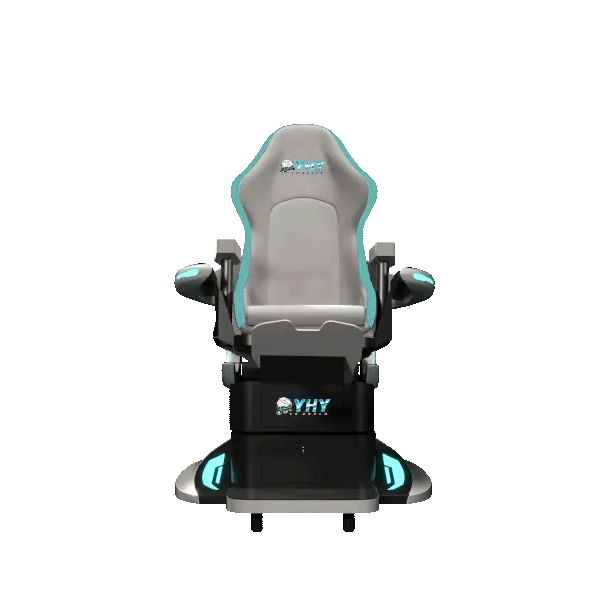
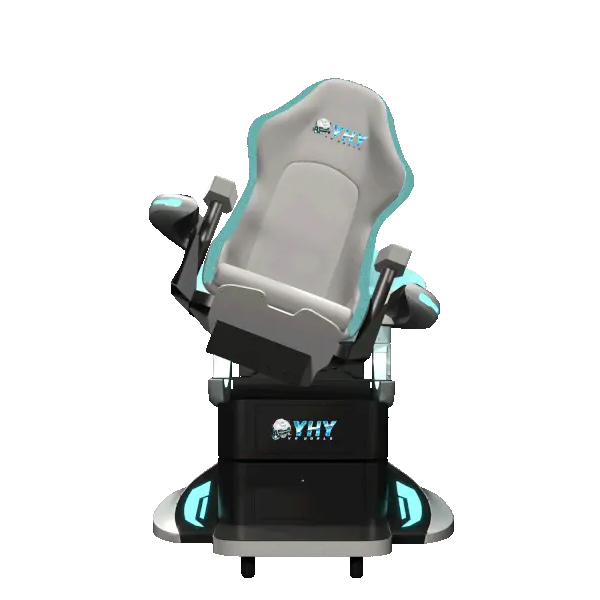
The motion range of a VR motion chair determines how immersive and realistic the experience will feel. A simulator with a higher DOF (Degrees of Freedom) provides more complex movements, like heave, sway, and surge, リアリズムの向上. The more natural and responsive the motion, the more immersive the VR experience, particularly in racing or flight simulations.
Compatibility with VR Systems
The best motion simulators should seamlessly integrate with popular VR systems such as Oculus, HTCは生きています, またはPlayStation VR. Compatibility ensures that users can enjoy a wide range of VR games and simulations without the need for complex setup or additional hardware. Compatibility with standard VR platforms also guarantees future-proofing for evolving VR technologies.
Machine Quality
High-quality materials such as steel frames and precision motors ensure durability. Components like brushless DC motors provide smooth, responsive movement, while aluminum or high-strength alloys in the frame offer robustness without excess weight. Quality engineering ensures long-lasting performance and reduces maintenance, keeping the system operational for extended periods.
Technical Support
Reliable technical support is essential for minimizing downtime. You may look for suppliers offering 24/7 support, troubleshooting guides, and regular software updates. Access to expert help via phone, email, or online forums ensures you can quickly resolve issues and keep the simulator running smoothly, especially in commercial settings with high demand.
Budget and ROI
Consider the total cost of ownership, including maintenance and energy consumption. Simulators that balance initial cost with long-term value, like those offering energy-efficient motors or low-maintenance designs, provide better ROI. For businesses, a simulator’s ability to engage customers and drive revenue over time is crucial in maximizing profitability.
結論
The best VR motion simulator involves considering factors like motion range, compatibility, and overall build quality. Whether you’re a gamer looking for realism or a business wanting to engage customers, these simulators offer a whole new level of immersion. Ready to elevate your VR experience? Dive into the VR world and unlock an entirely new dimension of virtual reality gaming.

